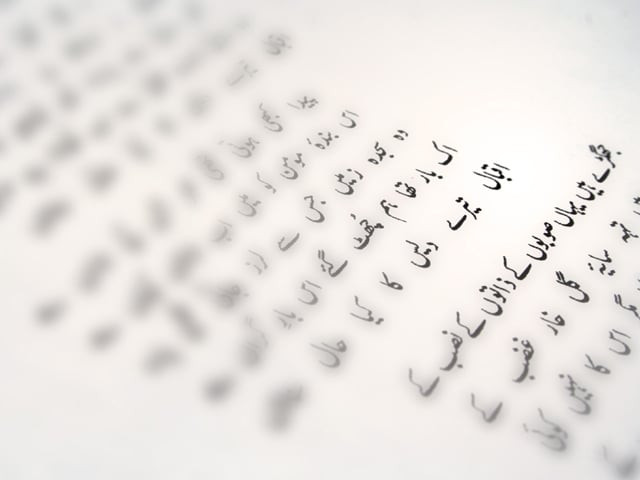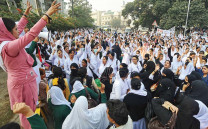Urdu ghazal takes new form: poets
Ghazal has crossed the vast plains since reaching its pinnacle, says Fatima Hassan

A session on 'Urdu Ghazal New Formations' was held at the 14th International Urdu Conference at the Arts Council of Pakistan Karachi, which was moderated by Nasira Zuberi.
On this occasion, Ambreen Haseeb Amber while discussing her writeup 'Contemporary Ghazal and New Political Consciousness' said that man is a social animal and he has a deep connection with society. "Man likes to be among people. But have you ever wondered what society really is? It is also the responsibility of writers and poets to improve the society. Whatever they write, reflect it in practice," she said.
Presenting her essay 'Modern Urdu Ghazal After Independence', Fatima Hassan said that the journey of Urdu ghazal has never stopped and will go on. "Urdu Ghazal has crossed the vast plains since reaching its pinnacle," she said.
On this occasion, she recited poems of Nasir Kazmi, Ahmad Mushtaq, Munir Niazi, Amjad Islam Amjad, Ahmad Faraz and other famous poets and received much praise from the participants.
Read More: Opening Urdu to the world
Commenting on the topic of 'modern ghazal and new aesthetic composition', Tariq Hashmi said that the genre of ghazal has been overrated. He further said that Munir Niazi and Nasir Kazmi lit the lamp of ghazal in comparison to "Nazam" [poem] in such a way that its radiance continues till date.
Shadab Ehsani while discussing 'Iqbal's Ghazal and Pakistani Narrative' said: "Iqbal's lyrics are painful. He used poetry to awaken the sleeping Muslims. He did not recite Urdu ghazal in the traditional way but in his ghazal there was an element of self-knowledge. Zia-ul-Hassan said that it has been seen that poets used to write poetry only with themes in mind.
In the forties, the metaphor of 'dream' came to the fore in the world of ghazal which was associated with the establishment of Pakistan, he said. Iftikhar Arif said that there are many ways to look at literary works and if one connects them with history then there is no problem in it.


















COMMENTS
Comments are moderated and generally will be posted if they are on-topic and not abusive.
For more information, please see our Comments FAQ